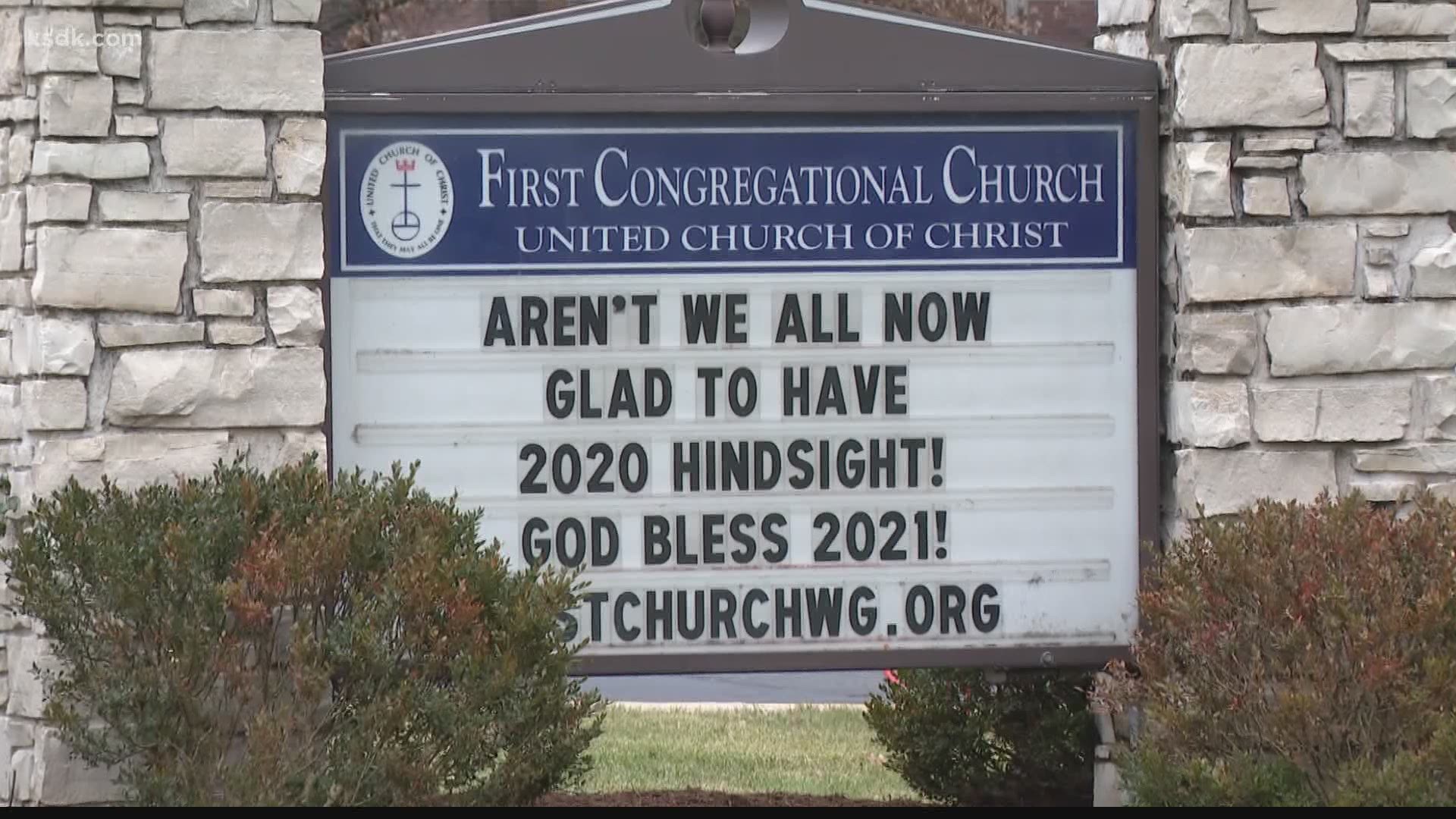WEBSTER GROVES, Mo. — Looking forward to the new year, Rev. David Denoon changed the message board at First Congregational Church in Webster Groves on Monday, with the block letters arranged to read: "Aren't we all now glad to have 2020 hindsight? God Bless 2021"
"I could actually do for a little less historic times," Denoon said.
Of course, the first full week of the year didn't let up. A pro-Trump mob broke through security lines and laid siege to the U.S. Capitol, causing elected officials to go into recess while they -- and nearly everyone else in the building -- ran for security.
"The fact is that we saw the brightest and the darkest of our nature on Wednesday," Denoon said.
Now Denoon -- like other faith leaders -- is grappling with how to talk to their congregation about the chaos at the Capitol.
Because his online sermons require more pre-production time, The Gathering's Rev. Matt Miofsky was completing his weekend sermon when the Capitol was breached Wednesday.
Miofsky says they commonly tackle hot-button political issues, but he acknowledges there is a balancing act and will likely take time to reflect on this week's event and address them the following Sunday.
"I know that a lot of the people in my congregation are torn between wanting to talk more about the events of the day so they can make sense of it, and then sometimes just wanting Sunday to be a refuge from the kind of political chaos that they're surrounded by every single day," Miofsky said.
"Jesus said He came to heal the brokenhearted, and we have a broken nation right now," Bishop Elijah Hankerson III said.
Hankerson, of Missouri Midwest - Church of God In Christ, said -- before he can bring comfort to his congregation -- he has to address his own frustrations, particularly the concern the mostly-white crowd on Wednesday was treated so differently than other protest groups.
"As a Black person looking at that, it's offensive. It hurts. It's personal," Hankerson said. "So before you can even get to the point of trying to address all of that to a congregation, you have to deal with the fact of being treated differently based on the color of your skin."
Over the past 12 months, faith leaders have tackled an unprecedented number of historic events: the pandemic and resulting economic troubles, protests for racial justice, the election, and huge numbers of COVID-19 fatalities.
"It just seems endless," Denoon said.
But there is a common thread amongst these leaders.
Miofsky and Hankerson talk of unity, while Denoon adds "we could have done better and we must do better."
Each of them still advocates for building a better future.
Contact reporter Sara Machi on Facebook and Twitter.

